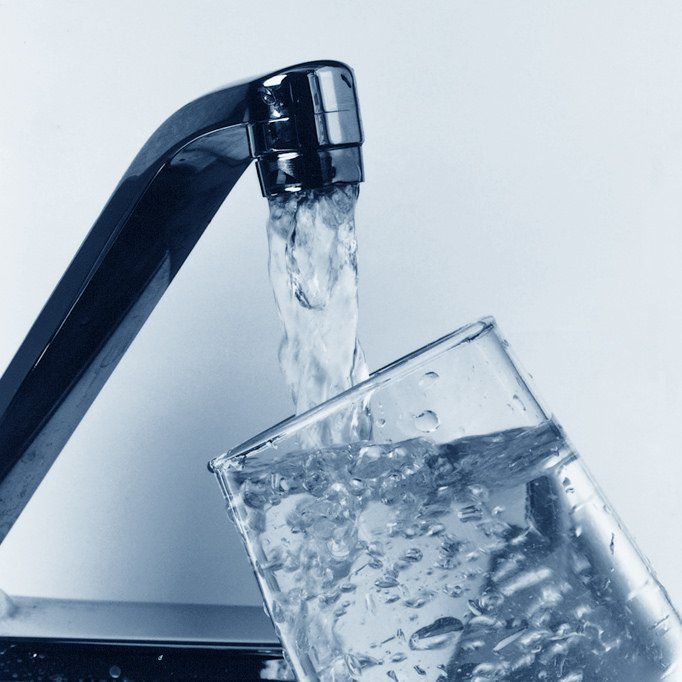The Truth Behind Alkaline Water
Alkaline Water Myths Debugged

Alkaline Water Explained
Alkaline water is commonly produced by an “ionizer,” a device that changes the chemical composition of water. “The idea is that an ionizer changes the pH level of water,” Ms. Czerwony says. “This makes the water more alkaline and less acidic.” In addition, marketers claim alkaline water works as an antioxidant to prevent cell damage that leads to disease. “Our bodies are wonderful machines. If there is an imbalance, we have ways to correct it.” They also claim numerous health benefits: improved digestion, slowing down the aging process, boosting the body’s mineral content and preventing bone loss. But such claims have not been properly tested in controlled scientific studies, and some even run counter to what science tells us about the body. “There have been no empirical studies showing that alkaline water has health benefits,” Ms. Czerwony says. “If and when there are, they’ll be worth discussing.”
Possible side effects and risks of alkaline water
Some negative side effects include the lowering of natural stomach acidity, which helps kill bacteria and prevent other undesirable pathogens from entering the bloodstream.
Additionally, an overall excess of alkalinity in the body may cause gastrointestinal issues and skin irritations. Too much alkalinity may also agitate the body’s normal pH, leading to metabolic alkalosis , a condition that may produce the following symptoms:
- nausea
- vomiting
- hand tremors
- muscle twitching
- tingling in the extremities or face
- confusion
Alkalosis can also cause a decrease in free calcium in the body, which can affect bone health. However, the most common cause of hypocalcemia isn’t from drinking alkaline water, but from having an underactive parathyroid gland.
Source: Healthline
The Marketing Hype Lacks Scientific Evidence
If you've heard the marketing pitches, "alkaline water can increase your energy, hydrate you better than regular water, prevent digestive issues and even slow aging," you may have gained interest in alkaline water. Science does not support these claims, says Beth Czerwony MS, RD, LD, a Cleveland Clinic registered dietitian. “This may be a case where you slap a ‘natural’ label on water and charge double, and people want to believe that it’s worth more,” Ms. Czerwony says.
Your Body Does It Better
Unless you have certain conditions such as kidney or respiratory disease, your body maintains a healthy pH balance on its own. “Our bodies are wonderful machines,” Ms. Czerwony says. “If there is an imbalance, we have ways to correct it. For example, if your blood becomes too acidic, you breathe out more carbon dioxide to bring the levels down.”
Source: Cleveland Clinic

Did you know that water can naturally be alkaline or artificially alkaline?
In nature, water flows down mountain streams and picks up alkaline minerals from the porous rock it runs through affecting its pH and making it naturally alkaline.
Companies have created machines that make water alkaline though ionizing the water or sometimes called "electrolysis." During electrolysis, water ionizers split apart water molecules with electricity to artificially alter the pH and create alkaline water.
Naturally alkaline water has a chemical makeup that is significantly different from artificially alkaline water. The most important factor is that artificially alkaline water causes unwanted side effects and should not be consumed often.
What is the difference between naturally and artificially alkaline water?
When measured in drinking water, an alkaline pH can be a result of either natural or unnatural conditions in the water. Thus when comparing two waters, each with a pH of 9.5, one can be healthful while the other causes side effects.
Water ionizers split apart water molecules with electricity to artificially create alkaline water. Why is this artificial? All water found in nature has a pH that perfectly corresponds to the minerals in the water. When you drink alkaline water, the body assumes it is receiving alkaline minerals, like calcium and magnesium. The problem with ionized water is that the body thinks it is receiving more alkaline minerals than what are actually present in the water.
If our goal is to be healthy, why would we drink or eat anything artificial? For the companies manufacturing ionizer machines, creating naturally alkaline water simply costs too much. Don’t expect the manufactures to start discussing the issue anytime soon. Most people never question whether water is naturally or artificially alkaline and these companies prefer it that way.
What are the side effects of drinking ionized water?
Artificially alkaline water only neutralizes acidity where it has direct contact, like the stomach and small intestine. When consumed daily, the small intestine in particular becomes overly alkaline and side effects begin to appear. Most common are erratic heart behavior, hypertension, nervousness/anxiety, urinary tract and bladder infections, and stabbing side pains.
We have spoken to numerous individuals who were hospitalized for heart conditions that magically disappeared when they stopped drinking artificially alkaline or ionized water. Why would anyone ingest anything unnatural when natural alternatives are available at a comparable cost?
More severe side effects were observed in a clinical study involving rats. The study revealed injury to cardiac tissue (heart muscle) as a result of drinking ERW (Electrolyzed Reduced Water), or water created by ionizer machines (artificially alkaline water). In an age when heart disease is a leading killer, ionized water is simply not a smart choice.
Why do some people see benefits when drinking ionized water for the first 30 days?
Before the body is stressed by the artificial alkalinity, it enjoys two wonderful benefits from drinking ionized water- increased hydration and more antioxidants. In fact, if these machines could do what they do WITHOUT altering the pH, they would not be nearly as harmful. The low ORP (one measure of antioxidant effects) and microclustering are responsible for 99% of all benefits observed from drinking ionized water.
Is it OK to drink alkaline water daily? Can one become too alkaline?
For excellent health, it is important to drink naturally alkaline water daily. Doing so supplies the body with the alkaline minerals it needs to buffer acid. While all of these minerals are not nutritionally available, they do buffer acid.
In the case of naturally alkaline water, it is recommended to drink at least two liters per day. Since the alkalinity is a result of naturally alkaline minerals like calcium and magnesium, the body is capable of using the minerals it needs and storing or discarding any excess.
If you are drinking ionized water or artificially alkaline water, it is always advised to measure your body's pH daily and regulate your consumption accordingly. Ionized water should not be used as a daily drinking water as you can easily become too alkaline and harm the body.
Source: Aqualiv

Contact New Orleans Water Systems
For water filtration solutions that protect you and your family from contaminated or improperly treated water, contact your local water experts at New Orleans Water Systems LLC , your authorized Kinetico dealer.







